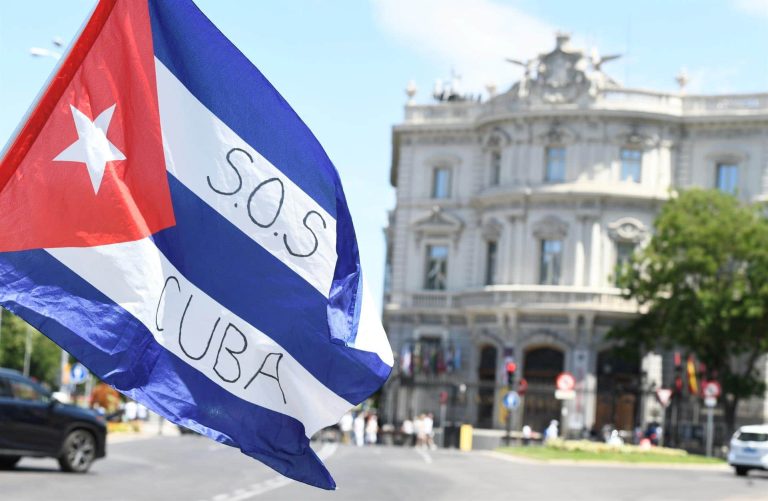15 de julio 2022

Children of Exile: The Births “Sowing Hope” in the Camp of Nicaraguan Farmers

PUBLICIDAD 1M
PUBLICIDAD 4D
PUBLICIDAD 5D
Cuba’s official celebration for having neutralized poor and dissident young people through imprisonment and exodus

Foto: EFE | Confidencial
While in Latin America, the majority of governments, of the left or right, try to promote different forms of amnesty for the demonstrators arrested in the latest social protests in the region; in Cuba, trials against the youth protestors of July 11, 2021, continue, with prison sentences of up to 30 years. Not only that: in a pathetic verbal exacerbation, the president and head of the Communist Party, Miguel Diaz-Canel, called to celebrate the repression as “a victory against a vandalic coup d’état.”
Cuban leaders have resorted to various forms of distortion of what happened a year ago. On that day, Diaz-Canel went so far as to say, “the combat order has been given,” calling on “revolutionaries” to confront “counterrevolutionaries” in the streets, which was clearly an exhortation to civil war. Later he moderated his discourse and spoke of people confused and manipulated by the social networks and, repeating the usual script, blamed the US trade embargo for the outbreak.
Shortly after the protests, it became evident that in various sectors of the government, the official reading of the phenomenon was even more complex. Social investment projects in poor neighborhoods of the island were announced and measures were made flexible for the transfer of resources from the Cuban diaspora, which would help to recover the non-state sector of the economy. In practice, the government was acknowledging its share of responsibility for the increase in popular unrest.
A year after the protests, the Cuban leadership returns to its first rhetorical instinct: an irresponsible triumphalism, mixed with machismo and unfiltered elitism. What are they celebrating? Basically, to have retaken control of the streets. How did they do it? By surveilling, imprisoning and exiling thousands of young Cubans. According to Human Rights Watch and several NGOs, more than 1,400 people were arrested in the weeks following July 11 and 12. According to the Prosecutor’s Office, by early 2022, some 800 had been prosecuted and nearly 500 were already in detention.
These numbers have increased in the last six months. It is most likely that the repressive balance of those marches, mostly peaceful according to official information, will be more than a thousand in prison for a long time. To the imprisonment should be added the notable increase in emigration, which in the last year has reached figures of more than 140,000 Cubans, an amount that exceeds the Mariel exodus in 1980 and of the boat people in the mid-1990s.
Thus, Cuba’s official celebration for having neutralized poor and dissident young people through imprisonment and exodus. In order to reach such an extreme arrogance requires an elitist, racist and machista mentality, but also a gloating in despotism, as has not been seen in Latin America and the Caribbean for a long time ago.
*This article was first published in La Razón of Mexico.
Archivado como:
PUBLICIDAD 3M
Historiador y ensayista cubano, residente en México. Es licenciado en Filosofía y doctor en Historia. Profesor e investigador del Centro de Investigación y Docencia Económicas (CIDE) de la Ciudad de México y profesor visitante en las universidades de Princeton, Yale, Columbia y Austin. Es autor de más de veinte libros sobre América Latina, México y Cuba.
PUBLICIDAD 3D